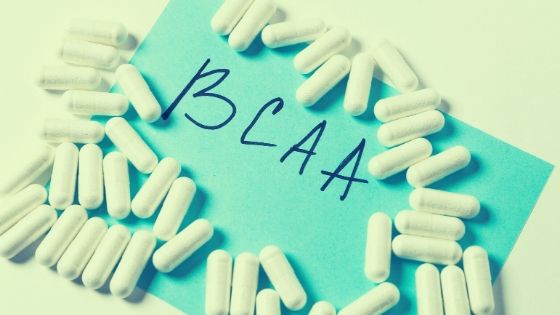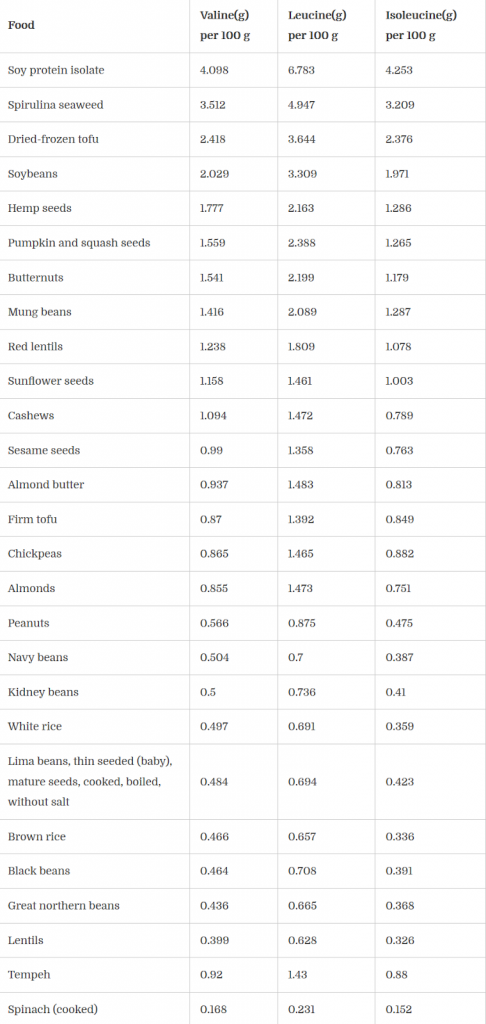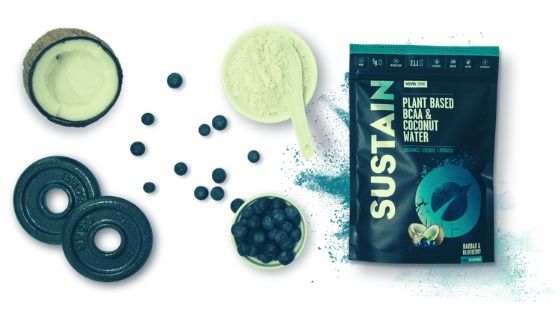As someone who eats and plant-based diet and is a gym-goer, I need to take care of my diet to make sure I get everything I need to keep my body strong and healthy.
Whether you’re an athlete or a regular gym-goer, eating a vegan diet requires a little extra consideration to avoid nutritional deficiencies and the problems they can cause.
If you’re like most vegans, you worry about certain things.
Specifically – Are you getting enough protein? Are you consuming enough Omega-3s? Are you getting the right amino acids?
All these are not so readily available in a plant-based diet.
This means that vegans might need to look to supplements to help meet their nutritional goals.
Unfortunately, not all supplements are created equal.
As consumers, we want to make sure we are consuming a high-quality product.
As vegans need to make sure their supplements are free of any ingredients derived from animals or animal byproducts, I’ve created this post.
In this post, I want to take a closer look at amino acid supplements, particularly branch chain amino acids – or BCAAs.
So are BCAAs vegan?
Yes and no. The most widely available and economical BCAA supplements are NOT vegan. Fortunately, there are also vegan BCAA formulations available for those of us who want to maintain a plant-based lifestyle. If you want to know if your BCAAs are vegan, be sure to read the label of your BCAA supplement. It is always a safe bet to buy a product that is certified vegan.
When I started investigating whether BCAAs are vegan, some of the things I discovered were really surprising.
The world of branch chain amino acid supplements can be downright scary.
If there is a dark side in the world of supplements, it is the production of conventional BCAAs.
In this article, I want to explore what, exactly, are BCAAs and why our body needs them.
I also want to take a look at why you should opt for a vegan BCAA supplement, regardless of your dietary preferences.
What Are BCAAs And Why Are They Important?

BCAA stands for Branch Chain Amino Acids. You’ve most likely heard of essential amino acids.
There are nine of them, and they are “essential” because our bodies do not produce them.
We absolutely need them, but can only get them through our diet.
Of the nine essential amino acids, branch chain amino acids are those distinguished by their distinct chemical structure.
There exist both proteinogenic and nonproteinogenic BCAAs.
Most people are concerned about are the proteinogenic BCAAs. These are amino acids that become proteins when assimilated into the body.
They are literally protein builders.
The proteinogenic BCAAs are leucine, isoleucine, and valine.
When these three BCAAs are consumed with the other essential amino acids, they play a big role in:
- Encouraging muscle growth and maintenance
- Helping to decrease post-workout muscle pain
- Helping you to maintain your energy during a workout
- Prevent the breakdown of muscles (from lack of exercise, sickness, or aging)
- Help ease symptoms of liver disease
As you can see, you do not have to be a die-hard athlete to benefit from BCAAs.
When we talk about muscle health, we are talking about all the organs in your body – not just your six-pack.
BCAAs are an important part of maintaining the physical structures of your body.
How Do Vegans Get BCAAs Naturally?
Getting all your essential amino acids, including the BCAAs, is not so easy when sticking to a vegan diet.
But it is possible.
If you want to skip the supplement and focus strictly on getting all of your BCAAs from diet based sources, you’ll need to do some careful meal planning.
If you are not super active, you can get away with consuming between 5 to 12 grams of BCAAs a day. If you are an athlete, you’ll want to make sure that you are getting around 20 grams.
Here’s a really great chart I found on VegFAQs that lays out how many grams of the different BCAAs are found in 100 grams portions of certain foods.

With careful meal planning, you can balance your calorie intake and your BCAA needs.
I’m going to interrupt myself here for a sec.
I’d like to call your attention to the very first item on the list, soy protein isolate.
It might seem like a good idea to skip the vegan BCAAs all together and just drink your soy protein shake a couple of times a day.
Kind of like killing two birds with one stone, right?
I don’t think that’s the best idea.
However, if you decided that skipping the BCAA supplement and sticking with a soy protein powder is the right choice for you, please read this article I wrote to learn a little more about soy protein isolate and soy protein powders.
Soy is, undeniably, a great source of complete proteins and all of the essential amino acids your body needs.
I recommend that you source your whole soy BCAAs from sources such as organic tofu and organic soybeans.
In general, as you study the list, you’ll notice that the legume family along with nuts and seeds are all excellent sources of BCAAs.
By educating yourself and through careful planning, you can get most of the BCAAs you need for basic maintenance through diet alone.
If you are an athlete with higher BCAA needs, you might end up eating way too many calories to get your 20 grams a day.
If you realize that you cannot get enough BCAAs without consuming way too many calories or otherwise throwing your diet out of balance, you will want to consider a BCAA supplement to help you meet your goals.
What Are Non-Vegan BCAAs Made From?
So let’s talk about BCAA supplements.
Some plant-based eaters are not strict vegans (like me), which is fine.
They are willing to be flexible and consume some products that are not be certified vegan.
If you are one of those folks, you might be considering a conventional BCAA powder or supplement.
It’s an understandable choice because vegan BCAAs tend to be much more costly than a conventional BCAA powder or tablet.
They can be up to twice as expensive!
But there is a reason why traditional BCAA powder is so cheap.
It’s literally made of garbage.
I know, I know. That sounds somewhat hysterical and exaggerated. I’ll be the first to admit it.
But it’s true.
Most non-vegan BCAAs are made from industrial waste such as pig fur, duck feathers, and even human hair.
Literally, garbage off of the slaughterhouse floors!
We all know that purity can be in issue with any supplement.
The supplement industry is a multibillion-dollar industry and lots of companies are trying to make as much money as possible.
It is common practice for low-quality manufacturers to cut corners by using the lowest quality ingredients to maximize profits.
Luckily, the technology exists that allows laboratories to test the quality, purity, and origin of BCAA powders.
These hard-to-believe claims that many vegan BCAA proponents make about non-vegan BCAAs are indeed verified and true.
If the BCAA supplement is non-vegan, you can be pretty sure that those amino acids are sourced from hydrolyzed keratin from fur, hair, and feathers.
What Is Vegan BCAA Bade From?

Vegan BCAAs are usually made from fermented corn or soybeans. Or they can be made from Sunflower like the brand VivoLife from the image above. (Highly Recommended)
Consumer demand has had a powerful impact on the supplement industry.
You can not only find vegan certified BCAAs, but also those that are certified as non-GMO and organic.
I think these two other certifications are just as important if you are looking for a high quality, pure BCAA supplement.
Corn and soybeans are the two most genetically modified and most widely cultivated crops in the world.
Organic and non-GMO certification ensures that your supplement truly respects the sustainability values that a vegan or plant-based lifestyle encourages.
How Do They Make Fermented Vegan BCAAs?
According to one manufacturer, there is a simple recipe.
You start with the bacterial starter that is responsible for the fermentation process.
You add the corn or soy ingredients, along with plant-derived glucose.
The fermentation process takes place under strictly controlled conditions before the final amino acids are purified and dried down into a sellable powder.
It’s not that simple though.
There is some serious biochemistry behind the large scale manufacture of fermented BCAAs.
The bacteria responsible for the fermentation process are specific for which amino acid is being produced.
It is my understanding that reputable manufacturers will produce each of the three BCAAs individually, and then blend them into a complete BCAA supplement respecting certain ratios.
A lot of BCAA powders boast the numbers 4:1:1 or 2:1:1. You can even find higher ratios like 8:1:1.
These numbers refer to the ratios of leucine to isoleucine to valine.
You’ll want a higher ratio (4:1:1 or higher) if you are more athletic or in a training program.
If you are looking to avoid deficiencies in your diet, you may be better off with a 2:1:1 ratio of BCAAs.
To Wrap it Up
As a vegan it is important that you make sure you consume enough BCAAs.
A vegan BCAA supplement may be just what you need to help you meet your goals.
Eating a balanced diet is the first step in avoiding BCAA deficiencies.
Vegan or not, vegan BCAAs are the best choice if you are looking to supplement your diet.
Non-vegan BCAAs should be avoided at all costs. Spend a little more on your health. You deserve it.
